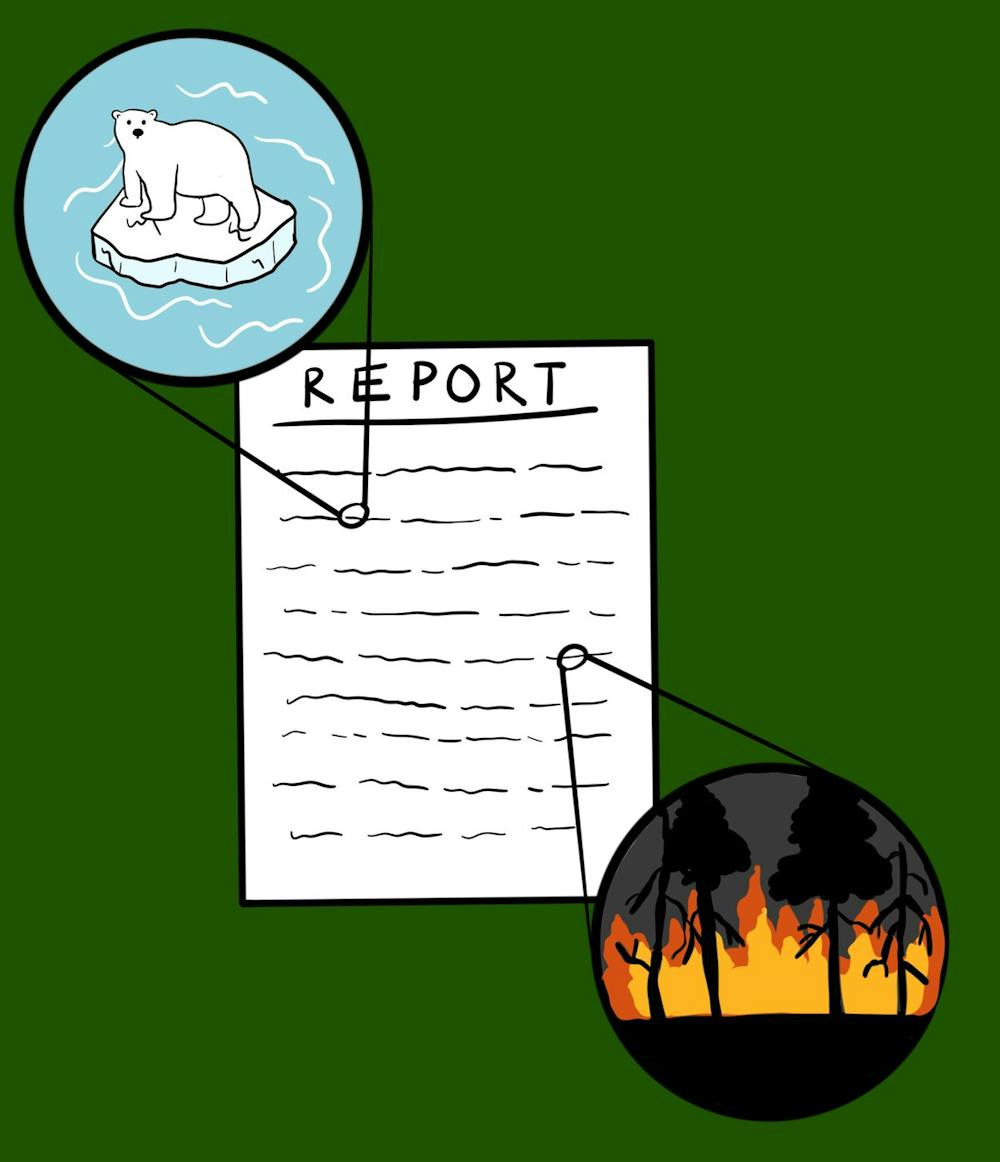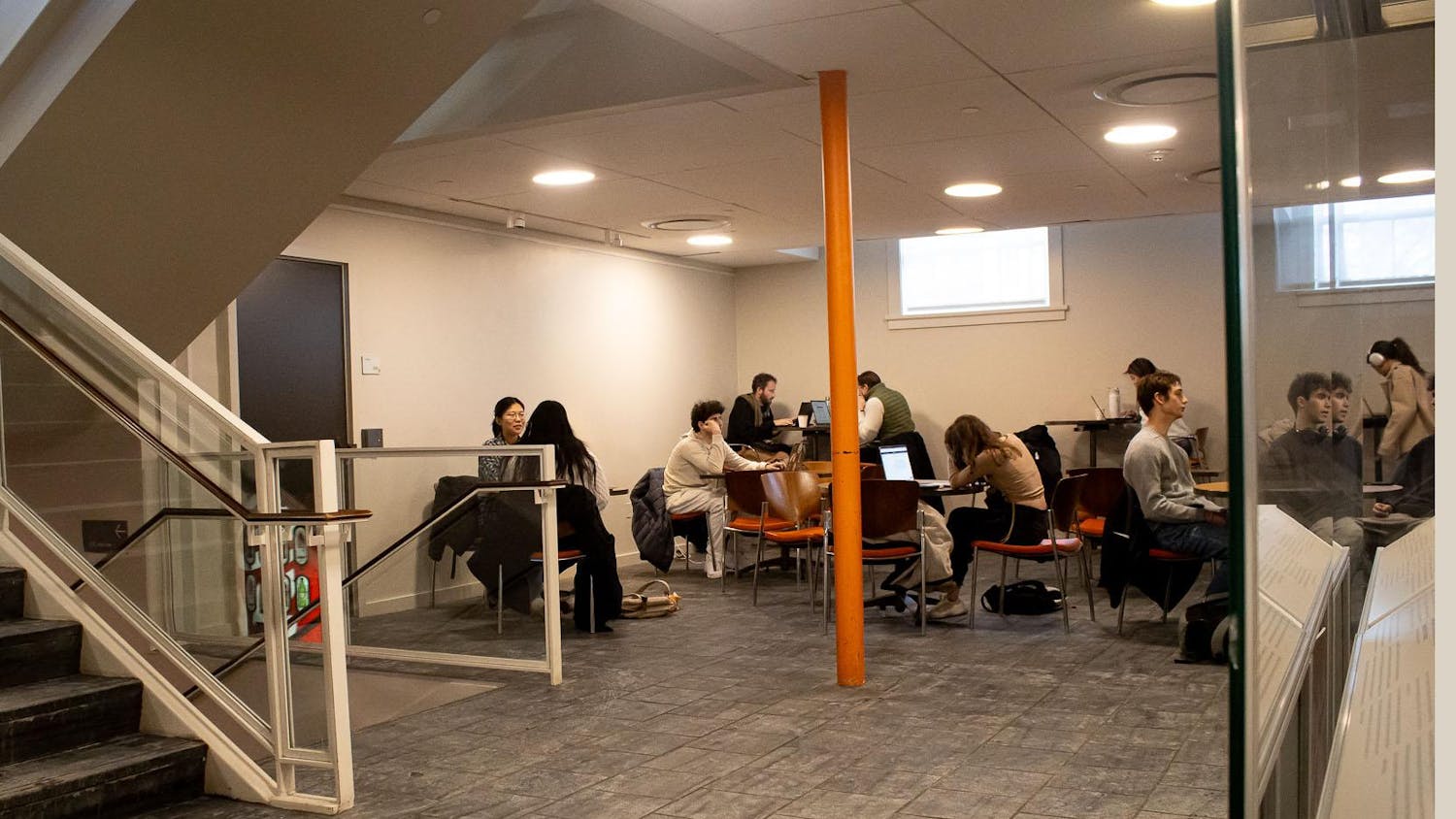Last month, the Intergovernmental Panel on Climate Change published its AR6 Synthesis Report, part of its Sixth Assessment Report on “the scientific basis of climate change, its impacts and future risks and options for adaptation and mitigation,” according to the IPCC website. The report reiterates the severity of the climate crisis and rising greenhouse gas emissions, urging the global community to take efforts to ensure that global warming does not exceed 1.5 degrees Celsius.
Established in 1988, the IPCC is a United Nations body that assesses the scientific landscape and conveys information surrounding climate change to policymakers. The body does not research climate change itself, but rather aggregates existing research, according to its website. The AR6 Synthesis Report is part of the sixth and final installment of an eight-year-long project that continually observes the causes and consequences of climate change.
The Herald spoke to Brown faculty members who contributed to the AR6 report to understand the key takeaways of the synthesis.
“The first and major takeaway was really about how critical it is that we move to reduce emissions in line with the 1.5 degree target, even though it's almost completely out of grasp right now,” said Kim Cobb, director of the Institute at Brown for Environment and Society. Cobb is one of the authors of the Climate Change 2021: The Physical Science Basis report.
Cobb added that the AR6 was “good at crystallizing how important this decade and the next are in determining” what climate change will look like throughout the next century.
The synthesis report, according to Cobb, builds off of previous AR6 reports to address the “climate damages already coming to bear for communities,” which will escalate until “we hit maximum warming.”
For Cobb, “the synthesis report is a more digestible version” of the research and new findings outlined by preceding AR6 reports, summarized by their headline statements.
“These reports come out and they are meant to be readable by everyone. They’re free. They try to make everything as bulleted and simple to grasp as possible,” said Baylor Fox-Kemper, professor of Earth, Environment and Planetary Sciences.
Fox-Kemper said that the synthesis report addresses “the physical basis of climate change, the impacts on human society and ecosystems and how we could adapt to them.”
Fox-Kemper was a reviewer of the Special Report on the Ocean and Cryosphere in a Changing Climate and a coordinating lead author on the Climate Change: The Physical Science Basis report.
The new report, published last month, establishes a priority to maintain warming below 1.5 degrees, instead of the two degrees aim previously outlined by the 2015 Paris Agreement. “In the previous reports, two degrees was seen as a good outcome. We were more worried about avoiding four or five or six degrees,” Fox-Kemper explained. “Now two degrees is sort of possible.”
According to Fox-Kemper, new technology has afforded scientists more accurate research on climate change than when the fifth assessment report was released in 2014. “We really understand what the changes are now,” he said. “A lot of questions in the past have been resolved by this report.”
The synthesis report also stressed the importance of localized knowledge in response to climate change, in contrast to global-scale interventions.
The synthesis report provides resources for scientists and policymakers to “communicate effectively with their own community” on issues of climate change, Fox-Kemper said.
Ensuring people are informed, combined with “good governance,” allows policymaking to be equitable, where “everybody benefits” and policies are “economically feasible,” he added.
He also highlighted how the report might push countries that have failed to enact legislation to meet their 1.5 degrees commitments. “Hopefully, the report helps to make politics simpler,” Fox-Kemper said.
For Cobb, the AR6 Synthesis Report is “a reminder of the significant stakes that are at play right now, and we cannot have enough reminders of that.”
Correction: A previous version of the article did not indicate Fox-Kemper's association with the Climate Change 2021: The Physical Science Basis report. The Herald regrets the error.





